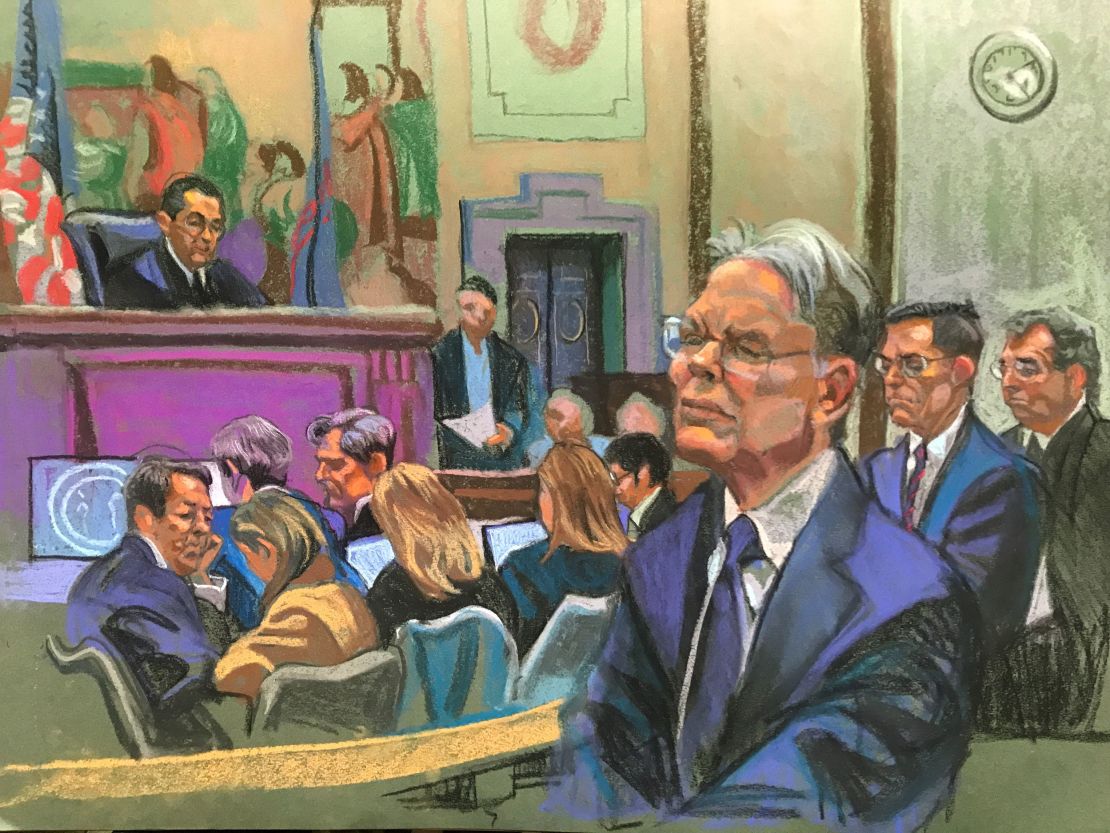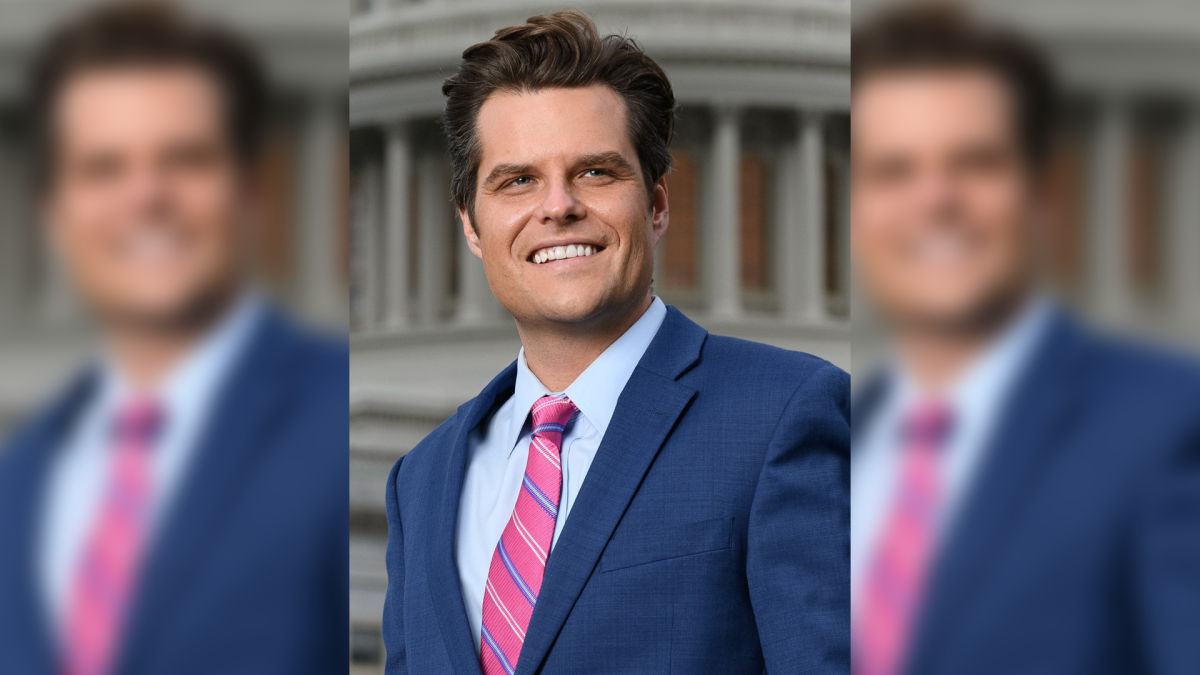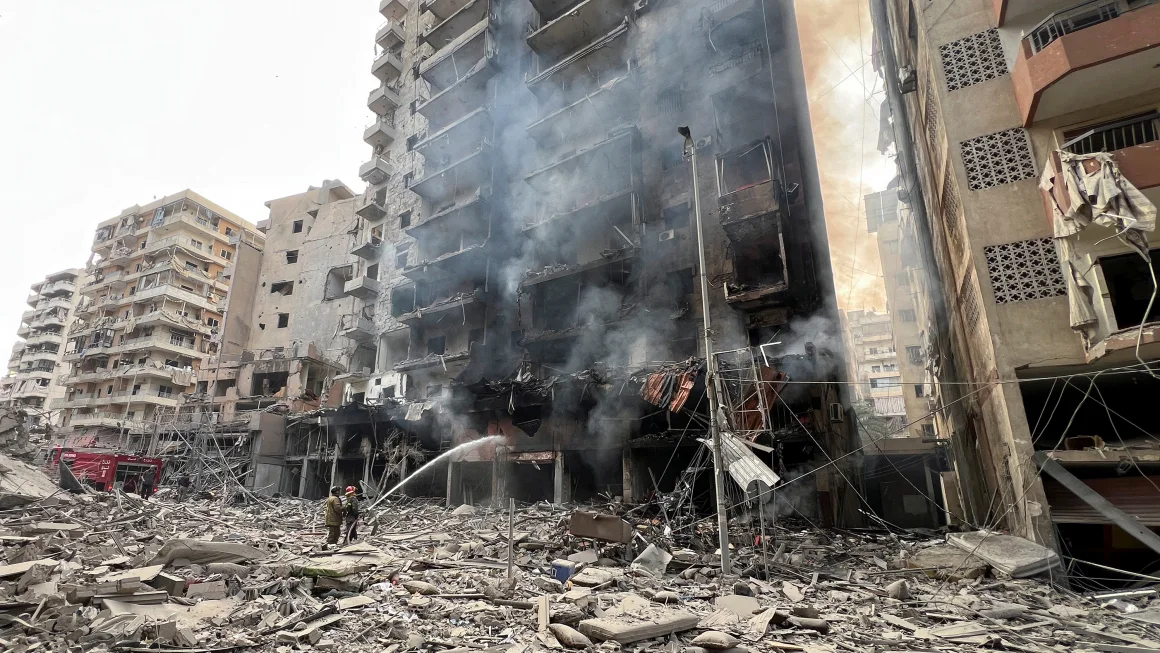CNN — A jury in a lawsuit brought by the New York Attorney General’s Office against the National Rifle Association found Friday that the gun rights group mismanaged charitable funds when it failed to stop top executives — including longtime leader Wayne LaPierre — from diverting millions of dollars for lavish personal trips, no-show contracts and other questionable expenditures.
In its verdict, the jury found LaPierre should pay the powerful gun rights group $4.3 million in damages for mismanagement and misspending charitable funds on lavish personal trips, no-show contracts and other questionable expenditures. The panel also found the group’s former CFO Wilson Phillips should pay back $2 million for breaching his fiduciary duties as an executive.
Shortly after the verdict was read, New York Attorney General Letitia James called the jury’s decision against the powerful National Rifle Association and its top executives, a “major victory” in a post on X.
“In a major victory, my office won our case against the NRA and its senior leadership for years of corruption and greed,” James said. “Wayne LaPierre and a senior executive at the NRA must pay $6.35 million for abusing the system and breaking our laws.”
The verdict is the latest blow against the once impenetrable lobbying juggernaut, which has been weakened in recent years by infighting, allegations of corruption and mismanagement, and plummeting membership.
As the verdict was announced, LaPierre sat in the same spot he sat throughout the trial, looking on stoically, with a blank stare and no visible reaction on his face. He did not comment as he was escorted out of the courthouse to an awaiting vehicle.
“We’re two months into 2024 and the NRA has already managed to lose this trial, their longtime leader, and whatever political relevance it had left,” said Nick Suplina, senior vice president of law and policy at Everytown for Gun Safety. “This verdict confirms what we’ve seen in recent elections, in state legislatures, and in the halls of Congress: the gun lobby has never been weaker and the gun safety movement has never been stronger.”
The state attorney general filed a lawsuit in 2020 to dissolve the NRA amid allegations the organization violated laws for non-profit groups, committed tax fraud and took millions for personal use.
The jury found LaPierre violated his fiduciary duties from 2014 to 2022 while at the helm of the non-profit. The panel said he caused $5.4 million in damages to the NRA by violating his statutory duties, but he proved he already repaid a little over $1 million to the charity.
The panel also found cause to remove him as executive vice president of the gun rights group. Although he resigned last month, the judge will decide whether to permanently bar him from leading the NRA in an upcoming bench trial.
But the jury did not find him liable for breaking laws against self-dealing when he secured a post-employment contract with the NRA in a package the New York Attorney General’s Office valued at over $17 million, finding it was properly approved in advance by the NRA board.

In the lengthy verdict, jurors determined the NRA improperly entered into some deals that benefited its insiders, including its top executives and board members, without proper board approval or ratification. The improper self-dealing included a post-employment consulting contract with the NRA’s former CFO Wilson Phillips, and hair and makeup expenses for LaPierre’s wife.
Jurors also found the NRA filed false and misleading statements in its annual reports.
In addition, the jury decided the NRA violated whistleblower protection laws by failing to have an appropriate whistleblower policy in place and by failing to investigate whistleblower complaints or retaliating against eight whistleblowers who came forward with concerns.
Jurors found jury the NRA was not liable for only one claim, which asked whether LaPierre’s post-employment contract was an improper transaction. The jury found the New York Attorney General’s Office did not prove the transaction had not received proper approval from the NRA board.
The jury began deliberations February 16 in a case that spotlights one of the most powerful lobbying groups in a nation with more civilian guns than people.
Caught ‘with their hands in the cookie jar’
During closing arguments, the attorney general’s office argued the NRA and its top executives engaged in mass corruption and should pay back to the organization millions of dollars spent on personal expenses.
The defendants – the NRA, LaPierre, Philips and general counsel John Frazer – were caught “with their hands in the cookie jar,” Assistant Attorney General Monica Connell said in closing arguments last week.
They denied, deflected and blamed each other for failing to properly administer charitable money and violating non-profit laws in a breach of their fiduciary duties, she said.
“What happens when someone is caught in the act?” Connell asked. “What are they going to do? What does our common sense and life experience tell us they’re going to do?”
“Stopping illegal conduct after you’ve been caught does not make your misconduct disappear,” Connell added.
LaPierre, who last month stepped down from his NRA role, citing his health, testified he wasn’t in it for the money. Instead, the expenses were part of an effort to bolster the organization’s reach and importance, he said.
Connell said LaPierre engaged in a long history of corruption by spending money on private planes, cars, five-star hotels, hundreds of thousands of dollars of clothing, million-dollar deals to insiders, and payments to loyal board members.
The NRA paid $600,000 alone on private flights to the Bahamas for LaPierre, and hair and makeup expenses totaled approximately $41,000, according to Connell.
The NRA’s contract with its former advertising firm MMP increased every time LaPierre or his wife spent time on the yacht of the owners of Ackerman McQueen, an MMP entity, she said.
From 2015 through 2022, the NRA paid MMP entities $109 million, and Connell told the jury this amount should be paid in damages split among LaPierre, Philips and Frazer.
“We’re talking about trust of NRA donors” and members who gave hard-earned money to charity, Connell said.
NRA CEO kept group of loyalists, AG says
The hiring and removal of Oliver North, a former NRA president who earlier testified for the state, is a clear example of LaPierre’s corruption, Connell said.
LaPierre placed him in the presidential role without approval and offered North a million-dollar contract, later suppressing and ousting him once North raised concerns, she told jurors. North first gained national attention as a central figure in the Iran-Contra scandal in the 1980s.
Connell also argued LaPierre kept a group of loyalists in the NRA board who protected, “Wayne’s world.”
In an unusual twist, members of the NRA could benefit from a verdict against former leaders. Connell said no money would be paid to the state.
“This is not a witch hunt,” Connell said. “The attorney general is trying to get money wrongfully taken from the NRA back to the NRA.”
LaPierre’s attorney Kent Correll argued during closing arguments the former CEO “wasn’t interested in building a big pile of money for himself; he wasn’t interested in getting money through a back door at the organization.”
The state had suggested every private flight LaPierre took “was somehow a personal flight,” Correll said. “It wasn’t. It was in the interest of the NRA.”
“The AG doesn’t want you to look at the heroism. They don’t want you to look at the freedom he has fought for. They don’t want you to look at the 4 million members,” he said.
Correll said the New York attorney general set out to destroy the organization and she knew the best way to do that was to get to LaPierre.
“She (Letitia James) wanted to decapitate the organization, and that was for political reasons,” he said.
NRA attorney Sarah Rodgers said the misconduct against the non-profit was concealed from the organization, and the mere fact that damages are payable to the group and not the state “tells you what we need to know” about the case.
“If anything was found where I received an advantage, where I received benefits, I wanted to pay it back in interest, which is what I did,” LaPierre testified.
The NRA’s recent woes – the civil case, the organization filed for bankruptcy in 2021 following a protracted leadership fight that saw the departure of its longtime chief lobbyist – have coincided with a decline in its political spending and plummeting membership in recent years.
Mostly nonpartisan for its first 100 years and during that time supportive of some gun control measures, the NRA began to lobby against federal firearm restrictions in the 1970s. It found allies among political conservatives, primarily within the Republican Party.
Still, the NRA’s strength endures within the GOP, whose leaders remain almost wholly aligned with the group’s positions. Observers have said a finding of liability does not mean a corporate death penalty for the NRA.
CNN’s Ray Sanchez contributed to this report.
This is a developing story and will be updated.



